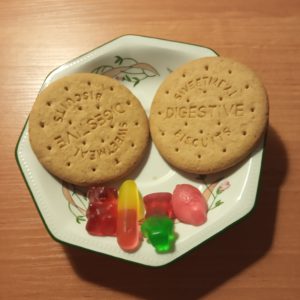Hypoglycemia is defined as a blood glucose level less than 72.0 mg/dl (4.0mmol/l)
It is a potential side effect of some diabetes treatments, including insulin and sulfonlyureas.
Hypoglycemia can occur when insulin removes too much glucose from the blood as a result of increased physical activity, too much medication, too little food (or a missed or delayed snack or meal), or the effects of drinking alcohol.
The symptoms of hypoglycemia may include cold, clammy or sweaty skin,pale face, blurred vision or dizziness, shakiness or lack of coordination, headache, irritability or hostility, stomach ache or nausea. If left untreated, the individual could lose consciousness or even die.
It can usually be effectively self-treated by ingestion of glucose (carbohydrate) and is not often associated with loss of consciousness or a seizure.
Severe hypoglycemia, requiring the assistance of another person, is a medical emergency.
If an individual is experiencing any of the above symptoms, his or her blood glucose level should be checked immediately.
If their glucose meter is not available, their symptoms should be treated anyway. It is better to be safe.
STAGE ONE LESS THAN 3.3 mmol/l(59.4 mg/dl)

If your blood sugar level drops to less than 3.3 mmol/l(59.4 mg/dl) you should take four medium sized jelly sweets and one small cup of juice(orange or apple).Also take two plain digestive biscuits or two plain hobnob biscuits.Wait two minutes and test again.
STAGE ONE GREATER THAN 3.3 mmol/l(59.4mg/dl)

If your blood sugar level is greater than 3.3mmol/l(59.4mg/dl) you should take four medium sized jelly sweets and two plain digestive biscuits or two plain hobnob biscuits.Wait two minutes and test again.
Then follow STAGE TWO.
STAGE TWO

If you are still low take a small half cup of juice(orange or apple)and one digestive biscuit or one hobnob biscuit.
Then follow STAGE THREE.
STAGE THREE
Wait ten minutes and test your blood sugar levels again and if they are above 7.0 mg/ml take two units of fast acting insulin(For example Novorapid).Monitor your blood sugar levels as normal after that.
People living with diabetes can usually recognize early symptoms of hypoglycemia and treat on their own. There may be occasion when an individual postpones treating their early symptoms and, as a result, requires assistance with ingesting the food or drink containing sugar.
If the treatment does not work or if the person becomes confused and disoriented, loses consciousness, or has a seizure, emergency service( 999/112) should be called immediately.
Caution
If consciousness is impaired do no give the diabetic anything to eat or drink.
If the diabetic loses consciousness call an ambulance immediately.
Some individuals with diabetes never experience an episode of severe hypoglycemia because either they are not on medication that causes it or they recognize the early warning signs and can quickly self-treat the problem by drinking or eating.
Also, with self-monitoring of blood glucose levels, some people with diabetes can manage their condition in such a manner that there is minimal risk of incapacitation from hypoglycemia because mildly low glucose levels can be easily detected and treated by ingestion of fast-acting carbohydrate.
RECOMMENDED DIABETES ARTICLES
Sugar Crash – Identify a Diabetic or Hypoglycemic Emergency
Medicare Diabetes Prevention Program
If you have any information,questions, or feedback you would like to include in this webpage.
Please email momo19@diabetessupportsite.com or leave your comments below.